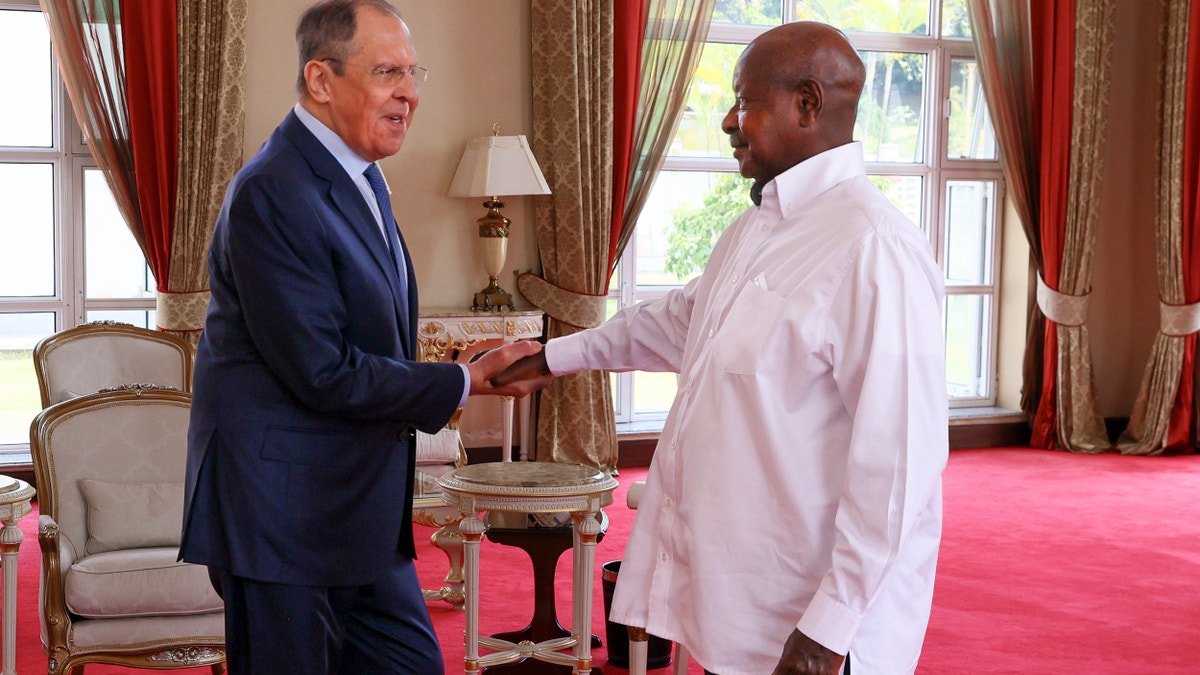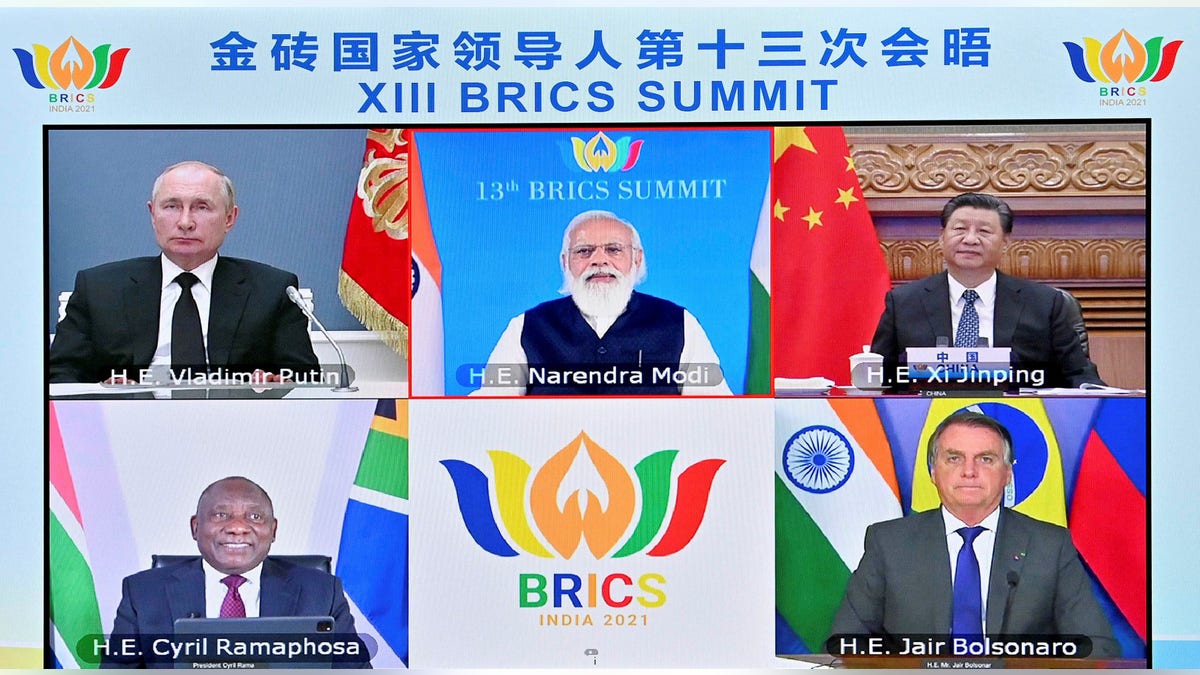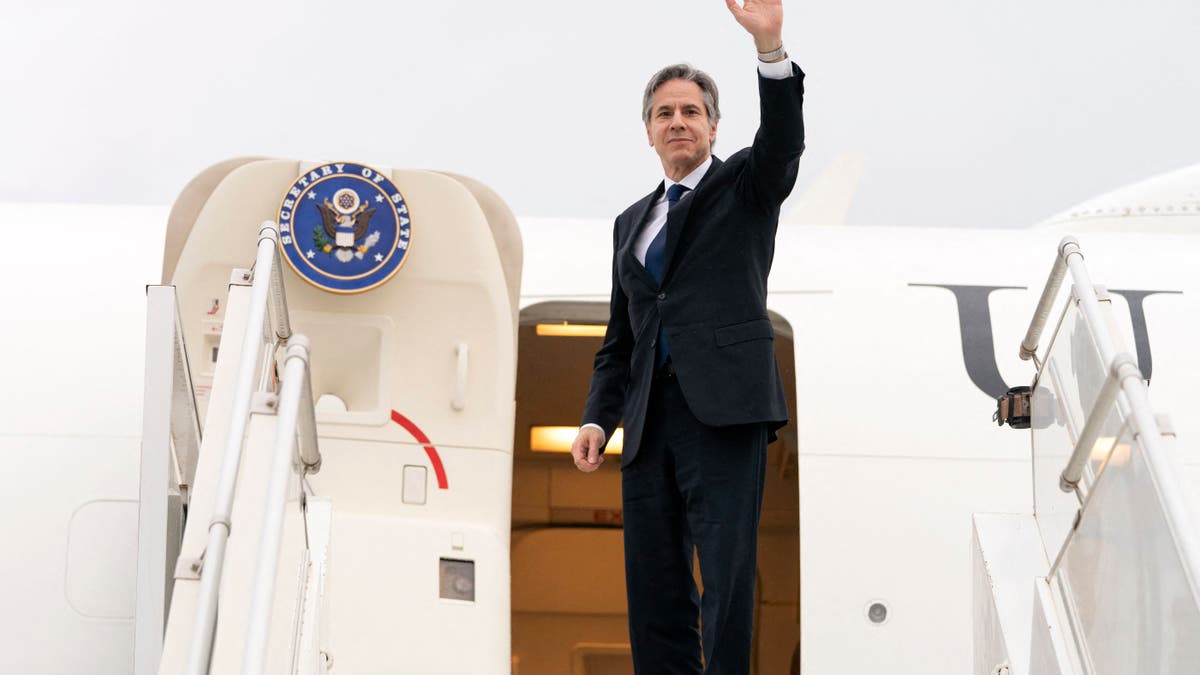In Uganda, US ambassador to UN warns countries not to violate Russia sanctions
U.S. ambassador to the UN Linda Thomas-Greenfield says African nations engaging with Russia where sanctions are in place could be punished, says Russian agricultural products are not sanctioned (Via APTV).
JOHANNESBURG, South Africa – Secretary of State Antony Blinken is flying into a superpower battleground when he heads to Africa this weekend. But he’s not the new Captain America in a Marvel movie. Rather, he’s the latest senior diplomat to enter the ring in the fight for influence on the continent between the U.S., China and Russia.
In the past few weeks, Washington and Russia’s emissaries have been exchanging accusations at each other over Ukraine and related food issues, as they sit down with African leaders.
"People are starving. People are suffering," said U.S. Ambassador to the United Nations Linda Thomas-Greenfield as she fired a salvo at the Kremlin. "The reason that there is a food insecurity crisis on the continent of Africa at this moment is because of Russia's unprovoked attack on Ukraine."
Responding to the Biden administration, Russian Foreign Minister Sergey Lavrov hit back as he swept through Africa just last week, claiming Africa’s food shortage is "due to the absolutely inadequate reaction of the West, which announced sanctions, undermining the availability of the food on the markets."

In this handout photo released by Russian Foreign Ministry Press Service, Russian Foreign Minister Sergey Lavrov, left, and Ugandan President Yowerei Museveni greet each other during their meeting in Entebbe, Uganda, on July 26, 2022. (AP Newsroom)
RUSSIA FAILS TO 'UNDERMINE' UN'S UNIFIED EFFORTS IN UKRAINE, AMBASSADOR SAYS
Following his trip to Asia, Blinken will arrive on the continent this weekend, and as the State Department noted, he will send a message that "African countries are geostrategic players." Blinken will sport his friendliest face when he sits down with leaders in South Africa, the Democratic Republic of the Congo and Rwanda over the next week.
"The timing, and intentions, of Blinken’s visit are clear and unambiguous," the Institute for Security Studies Senior Researcher Priyal Singh told Fox News. There’s a "geopolitical competition for influence amongst African states, following the Russian invasion of Ukraine. "
"Whereas the visit of the Russian Foreign Minister more or less worked to illustrate that Russia could look toward partners on the continent in order to address its growing isolation amongst Western states, the visit by Blinken could, accordingly, further underscore the renewed geostrategic importance and relevance of the continent," he added.
But the secretary of state won’t find it all plain sailing, says Singh: "Blinken will have to be particularly tactful in how the U.S. goes about shoring up more support for its position on the Ukraine invasion, given the fact that key foreign policy officials and decision-makers within the ruling parties of a number of African states maintain an entrenched worldview of international affairs".
BLINKEN VISIT TO SOUTHEAST ASIA HIGHLIGHTS IMPORTANCE OF POTENTIAL BATTLEGROUND WITH CHINA

Russian President Vladimir Putin, Chinese President Xi Jinping, South African President Cyril Ramaphosa and Brazilian President Jair Bolsonaro attended the 13th BRICS summit via video link in Beijing on Sept. 9, 2021. Indian Prime Minister Narendra Modi presided over it. (Yue Yuewei/Xinhua via Getty Images)
That’s an understatement when it comes to Blinken’s first stop, South Africa. The country is a member of BRICS, the trade and political fan club whose members also comprise Brazil, Russia, India and China. Politicians here still believe in paying back for historical support the Kremlin gave in the downfall of apartheid. South Africa was one of 17 countries who abstained at a U.N. General Assembly vote, rather than condemning Russia over their actions in Ukraine.
"South Africa is not indifferent to what is going on in Ukraine," Clayson Monyela, head of public diplomacy at the South African equivalent of the State Department told Fox News. "We continue to stress that dialogue, mediation and diplomacy is the only path to end the current conflict."
Stressing South Africa’s support for the non-aligned movement, and pointing up that Pretoria will not take sides over Ukraine, Monyela added: "We have resisted becoming embroiled in the politics of confrontation and aggression that has been advocated by the powerful countries."
The Biden administration is not having an easy time in its efforts to influence African countries to see Washington’s way. Ambassador Thomas-Greenfield met Uganda’s President Yoweri Museveni this week, and, interpreting diplomatic speak, the U.S. envoy did get her point across: "They discussed efforts to help mitigate the effect of Russia’s war on Ukraine on global food security and commodity prices," according to the U.S. Mission to the U.N. acting spokesperson Melissa Quartell.

Secretary of State Antony Blinken waves as he boards a plane to depart from the Algerian capital of Algiers on March 30, 2022 (Jacquelyn Martin/POOL/AFP via Getty Images)
AT LEAST 5 KILLED AS ANTI-UN PROTESTS FLARE IN EAST CONGO
But the seat she sat in, at State House, was still warm from the visit by Russia’s Lavrov just days before. As he stood next to the Russian foreign minister, Museveni waxed lyrical: "If Russia makes mistakes, then we tell them," he said, "but when they have not made a mistake, we cannot be against them."
When Museveni was asked about Thomas-Greenfield, his reply wasn't in such a friendly tone: "Nobody can give us instructions," he told the BBC.
Another indication, analysts say, that the U.S. is not getting its way in Africa is the warning not to buy Russian oil or gas that Thomas-Greenfield fired off just after she came out of the meeting with Museveni: "If a country decides to engage with Russia, where there are sanctions, then they are breaking those sanctions." And she added, "then ... they stand the chance of having actions taken against them."
Secretary of State Blinken has not hinted at any such threats. But even before his plane has entered African airspace this weekend, the Atlantic Council has joined others in criticizing the trip’s timing. "This visit is almost too late, coming after Lavrov's visit," Ambassador Rama Yade, Senior Director at the Council’s Africa Center, told Fox News.
CLICK HERE TO GET THE FOX NEWS APP
"South Africa, and beyond the African continent itself, is so strategic that everybody should have understood that before Lavrov's trip. Moscow treats African countries as strategic partners."
Yade concluded that support in Africa heavily favors Russia: "Vladimir Putin attended the last BRICS Summit as guest of honor, while Volodymyr Zelenskyy's online speech at the African Union (AU) Summit in June was followed by only four African heads of state."









































